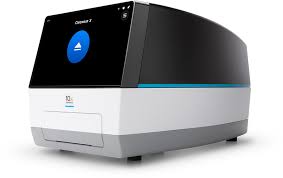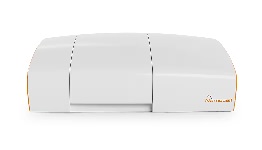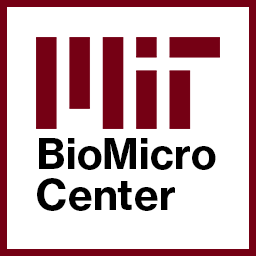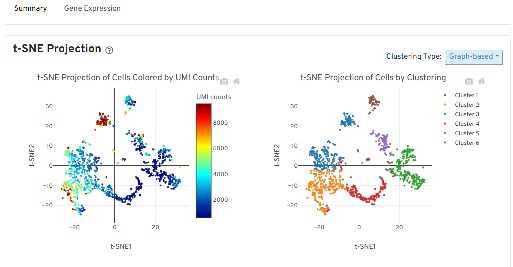BioMicroCenter:SingleCell: Difference between revisions
| Line 83: | Line 83: | ||
FAQs for Users <BR> | FAQs for Users <BR> | ||
1) What buffers are compatible with 10X applications? | '''1) What buffers are compatible with 10X applications?''' | ||
<br> | <br> | ||
Buffers/media should not contain excessive amounts of EDTA (>0.1 mM) or magnesium (>3 mM) and should be free of surfactants (i.e. Tween-20, SDS etc) and any RNases or DNases. | Buffers/media should not contain excessive amounts of EDTA (>0.1 mM) or magnesium (>3 mM) and should be free of surfactants (i.e. Tween-20, SDS etc) and any RNases or DNases. | ||
| Line 90: | Line 90: | ||
*1xPBS (calcium and magnesium free) containing up to 10% FBS for CMO labelling | *1xPBS (calcium and magnesium free) containing up to 10% FBS for CMO labelling | ||
*Nuclei also require addition of RNase Inhibitor along with 10X Genomics 1X nuclei buffer before chip loading, instructions for which are included in 10x user guides. If needed, users can collect buffer aliquots from the BMC after submitting a project. Please coordinate with BMC staff for pick-up. <br> | *Nuclei also require addition of RNase Inhibitor along with 10X Genomics 1X nuclei buffer before chip loading, instructions for which are included in 10x user guides. If needed, users can collect buffer aliquots from the BMC after submitting a project. Please coordinate with BMC staff for pick-up. <br> | ||
2) How many cells are captured in the Assay? | '''2) How many cells are captured in the Assay?''' | ||
-Up to 10,000 cells for NextGEM and 20,000 cells for GEM-X can be uniquely barcoded, but this highly depends on cell counts and viability. Dying cells will leak RNA, hence may not be captured efficiently leading to sample failures. We recommend to count cells at the BMC to avoid discrepancies, but can work with users' counts as well. <BR> | -Up to 10,000 cells for NextGEM and 20,000 cells for GEM-X can be uniquely barcoded, but this highly depends on cell counts and viability. Dying cells will leak RNA, hence may not be captured efficiently leading to sample failures. We recommend to count cells at the BMC to avoid discrepancies, but can work with users' counts as well. <BR> | ||
3) What are the best practices for flow sorting cells? | '''3) What are the best practices for flow sorting cells?''' | ||
-https://kb.10xgenomics.com/hc/en-us/articles/360048826911-What-are-the-best-practices-for-flow-sorting-cells-for-10x-Genomics-assays <BR> | -https://kb.10xgenomics.com/hc/en-us/articles/360048826911-What-are-the-best-practices-for-flow-sorting-cells-for-10x-Genomics-assays <BR> | ||
4) What is the expected size distribution for cDNA? | '''4) What is the expected size distribution for cDNA?''' | ||
- cDNA for 3' and 5' libraries will span between 400 to 9000 base pairs, depending on sample type. | - cDNA for 3' and 5' libraries will span between 400 to 9000 base pairs, depending on sample type. | ||
Revision as of 17:43, 11 June 2025
HOME -- SEQUENCING -- LIBRARY PREP -- HIGH-THROUGHPUT -- COMPUTING -- OTHER TECHNOLOGY
The BioMicro Center supports two technologies for single cell experiments: 10X libraries as walkup or as an assisted service, and plate based methods using the Namocell single cell sorter.
10x CHROMIUM X
 |
The BioMicro Center provides access to 10x Genomics library preparation as an assisted or a walk-up service. Added in 2023, The 10x Chromium X can handle a broad variety of methodologies now including 3' and 5' RNA sequencing, ATACseq and CNV. For users requesting assisted service, they will bring their single cell suspension to the core at a time coordinated with the center staff. We will then work with you to get the initial samples loaded and proceed through the protocol with a quality control check at the amplified cDNA state.
FAQs for Users
2) How many cells are captured in the Assay?
-Up to 10,000 cells for NextGEM and 20,000 cells for GEM-X can be uniquely barcoded, but this highly depends on cell counts and viability. Dying cells will leak RNA, hence may not be captured efficiently leading to sample failures. We recommend to count cells at the BMC to avoid discrepancies, but can work with users' counts as well. For more resources, please visit https://kb.10xgenomics.com/hc/en-us |
|||||||||||||||||||||||||||||||||
NAMOCELL SINGLE CELL SORTER
|
The Namocell Single Cell Sorter allows users to sort cells into plates. The sorter uses microfluidics to sort single cells in 1uL of sheath fluid into a well. The instrument uses disposable cartridges to minimize contamination. The instrument integrates well with the TTP Labtech Mosquito HV which handles small reaction volumes.  |


